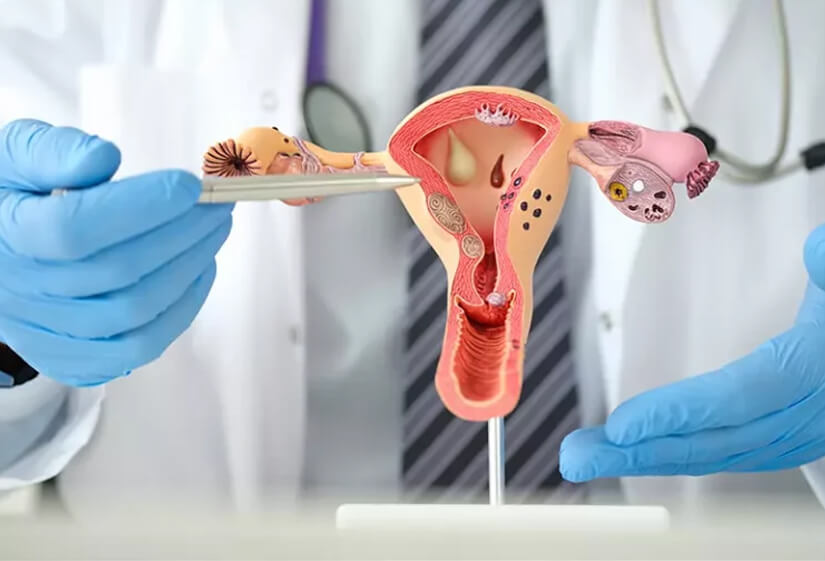Menstrual health is a topic that many individuals experience but few openly discuss. Despite being an integral part of life for people with menstrual cycles, it often gets overshadowed by other aspects of health. However, menstrual health, when taken seriously and incorporated into a regular health routine, has profound benefits not just for the reproductive system, but for overall well-being. Understanding how to prioritize and care for menstrual health is essential for long-term health, from managing physical discomfort to improving emotional balance and boosting confidence.
In this article, we will explore the many benefits of focusing on menstrual health and how adding simple practices to your routine can improve both your menstrual experience and your general health.
Understanding Menstrual Health
At its core, menstrual health refers to the physical and emotional well-being surrounding the menstrual cycle. It involves not only the regularity and comfort of the menstrual period itself but also the broader aspects of reproductive health. For most people, the menstrual cycle begins around puberty and continues until menopause, often lasting decades.
Menstrual health can be influenced by numerous factors such as lifestyle choices, diet, exercise, stress levels, and environmental influences. Irregular cycles, severe pain, and other symptoms like bloating, fatigue, or mood swings are common, but they are not inevitable. By paying attention to menstrual health, individuals can improve their experience and minimize the negative effects that might otherwise accompany their cycle.
The Connection Between Menstrual Health and Overall Well-being
-
Improved Physical Health
One of the primary benefits of focusing on menstrual health is the direct impact it can have on physical comfort and health. Regular menstruation is often an indicator of a well-functioning hormonal system. Hormones such as estrogen and progesterone play a key role in regulating menstrual cycles, and a balanced hormonal profile is crucial not just for reproductive health but for overall bodily function.
By adopting habits that promote healthy menstrual cycles, individuals can reduce the risk of irregular periods or conditions such as polycystic ovary syndrome (PCOS), endometriosis, and fibroids. These conditions can cause severe pain, heavy bleeding, and other reproductive challenges, but they can often be managed with dietary adjustments, stress management, and lifestyle changes.
Incorporating regular exercise into your routine is also beneficial for menstrual health. Physical activity helps regulate hormone levels, improves circulation, and can alleviate symptoms like cramps and bloating. Moderate exercises such as yoga, walking, or swimming can reduce menstrual pain and improve overall comfort during your period.
-
Better Emotional Well-being
Menstruation is often associated with mood swings, irritability, and emotional turbulence due to hormonal fluctuations. While these emotional shifts are common, they don’t need to be debilitating. By practicing menstrual health, you can minimize these mood swings and even improve emotional stability.
Self-care practices such as mindfulness, meditation, and yoga can help reduce stress and promote emotional well-being throughout the menstrual cycle. These techniques help regulate the body’s stress response, which, in turn, can balance hormones and stabilize mood. Additionally, staying connected to your body and listening to its signals during your period can empower you to manage discomfort better, giving you a sense of control.
Another valuable emotional benefit of maintaining menstrual health is increased self-awareness. When you understand the cyclical nature of your body, you can anticipate when you might feel more tired, more emotional, or more sensitive, which allows you to prepare accordingly. This knowledge can reduce anxiety, improve self-compassion, and help you engage in better self-care routines.
-
Optimizing Fertility and Reproductive Health
For those who are planning to conceive, prioritizing menstrual health is crucial for fertility. A healthy menstrual cycle is a strong indicator of balanced hormone levels, which is essential for successful conception. Regular, predictable periods often suggest that ovulation is occurring, which is vital for pregnancy.
In addition, the health of the menstrual cycle can provide early insight into reproductive health. Issues like irregular cycles or painful menstruation may signal underlying health conditions that could affect fertility. By staying attuned to your menstrual health, you are in a better position to seek early intervention, potentially preventing complications in the future.
For individuals who are not yet planning to conceive, regular menstrual health practices also contribute to reproductive longevity. Maintaining a healthy menstrual cycle helps optimize overall reproductive health and could reduce the risk of later health complications.
-
Enhanced Productivity and Energy Levels
Many people experience fatigue, bloating, and discomfort during their periods. These physical and emotional symptoms can sap your energy and affect productivity. However, by embracing habits that promote menstrual health, you can alleviate these symptoms and maintain higher energy levels.
A balanced diet rich in whole foods—such as fruits, vegetables, lean proteins, and whole grains—can stabilize blood sugar and reduce inflammation, both of which help curb feelings of fatigue. Hydration is another important factor; staying hydrated helps combat bloating, cramps, and other period-related discomforts.
Regular physical activity is another great way to combat fatigue. Exercise boosts endorphins and increases energy levels, helping you feel more alert and less fatigued, even during the heavier days of your cycle. Also, improving sleep hygiene and ensuring adequate rest can help maintain high energy levels throughout the month.
-
Better Digestive Health
The hormonal fluctuations that occur during menstruation can also impact your digestive system. Many individuals experience bloating, constipation, or diarrhea before and during their period due to changes in estrogen and progesterone levels. By adopting a diet that promotes digestive health, you can minimize these issues.
High-fiber foods like fruits, vegetables, and whole grains support digestion and prevent constipation. Probiotic-rich foods such as yogurt, kefir, and fermented vegetables can promote gut health, balancing the microbiome and reducing bloating or discomfort.
-
Preventing Chronic Conditions
Focusing on menstrual health can also reduce the risk of developing chronic conditions that may stem from hormonal imbalances. Conditions like obesity, insulin resistance, and cardiovascular disease are often linked to hormonal issues, which can begin to manifest with irregular menstrual cycles or reproductive health problems.
By managing menstrual health through proper nutrition, exercise, and stress management, you help reduce your risk for these conditions. Furthermore, staying on top of your health routine allows you to catch early warning signs of potential hormonal or reproductive disorders, increasing your chances of early intervention and successful management.
How to Incorporate Menstrual Health Into Your Routine
Adding practices to promote menstrual health doesn’t have to be complicated. Here are a few simple steps you can take to improve your menstrual health:
-
Maintain a balanced diet: Focus on whole foods, limit processed sugar, and stay hydrated.
-
Exercise regularly: Engage in moderate exercise such as yoga, walking, or swimming to reduce cramps and boost energy.
-
Practice stress management: Meditate, try deep breathing exercises, or enjoy relaxing activities that reduce stress.
-
Track your cycle: Keep track of your menstrual cycle with an app or journal, noting any changes in symptoms or patterns.
-
Prioritize sleep: Ensure you get enough rest, especially during the premenstrual phase when fatigue may be more pronounced.
-
Consult with a healthcare professional: Regular check-ups with your doctor can help identify any underlying issues that may be affecting your menstrual health.
Conclusion
Focusing on menstrual health not only enhances your physical well-being but also positively impacts emotional balance, fertility, productivity, and long-term reproductive health. By incorporating practices that promote a healthy menstrual cycle, you can prevent discomfort, alleviate pain, and set the foundation for a healthier, more balanced lifestyle. Whether you’re seeking to alleviate symptoms of PMS, boost fertility, or simply feel more in tune with your body, taking charge of your menstrual health is one of the most empowering and rewarding steps you can take in your wellness journey.




